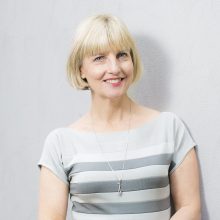The quiet revolution
Passersby looking down their noses, some tut, some offering well meaning advice. A collective silent judgment about the mother’s ability to parent her own child.
But a growing number of Australians are beginning to view scenes like these with a renewed understanding.
According to a recent national poll, half of Australians either have, or know someone, on the autism spectrum.
And with the National Disability Insurance Scheme rolling out and supporting the inclusion and participation of more people with disability like autism in the community, we have a responsibility to ensure everyone has the opportunity to fully contribute to our society.
This is a revolution. In days gone by, many people on the autism spectrum were locked away out of sight in institutions, treated poorly, and spent their entire lives excluded from the rest of society.
This revolution is not just about providing support and services to people with disability, but also about the broader community learning how best to support them to be able to contribute and fully participate in community life.
The Essential poll conducted this month revealed that while a clear majority of Australians (72 per cent) believe schools, workplaces and the wider community need to have a better understanding of how to support people on the autism spectrum, only 29 per cent of Australians said they would know how to.
This is a global trend, championed by American autism advocate and author Steve Silberman, who says we will all benefit if we don’t try to box people on the autism spectrum into our world view, but actually change the world a little to make it easier for them to live in.
In Australia, Scienceworks and the Melbourne and Immigration museums now provide priority access to children on the autism spectrum so they don’t get overwhelmed waiting in long queues. Village and Hoyts are screening regular autism-friendly sessions which turn the volume down and keep low level lighting on.
Increasingly local councils are providing ‘quiet’ areas in playgrounds and sensory play experiences. Social scripts, which allow parents to go through what to expect with their children before they leave the house, are being produced by recreation and entertainment venues.
Simple changes like these are, for autistic people, the equivalent of ramps and rails for people who use wheelchairs.
Our own All In Victorian Autism Conference in September will provide an autism friendly space by doing simple things like turning off hand dryers in the bathrooms, establishing quiet areas and providing live captioning of speakers.
This quiet revolution in disability support is making the world a much better place for autistic people, reducing anxiety and the resulting behaviors from being overwhelmed, and enabling the rest of the community to engage with them in a different, much more inclusive way.
As a result, awareness about autism is growing, tolerance is becoming acceptance and a deeper understanding of how each of us provide support is being fostered.
While we have made leaps and bounds since the days of institutions, we still have a long way to go to achieve widespread and deeper understanding.
Simply providing people on the autism spectrum more time to respond to questions, being aware that noise and light, queues and crowds can be really challenging, and providing quiet space and time, are the first steps.
And the biggest support of all is not passing judgment on that mother in the shopping centre.
Steve Silberman will present at the Victorian Autism Conference, 1 & 2 Sept.
For more information visit: www.vac2016.com.au


Join the conversation